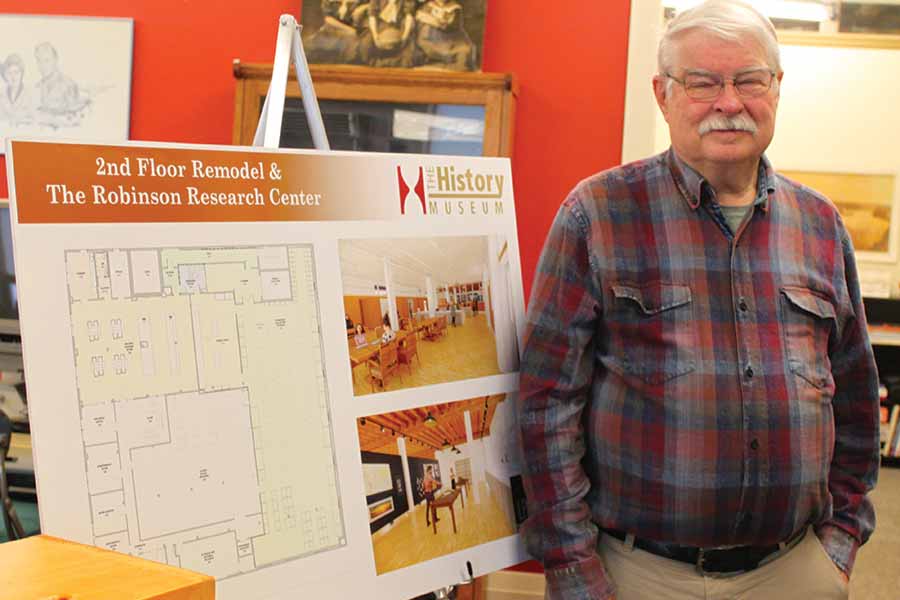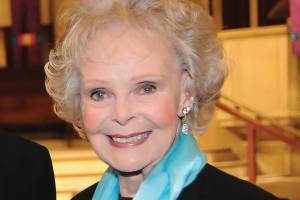By Suzanne Waring
Winston Churchill said, “We make a living by what we get. We make a life by what we give.” Following the crux of Churchill’s famous quote, Owen Robinson has chosen to give to his Montana community his entire adult life.
Coming from a family who owned and operated lumberyard businesses, Robinson grew up in Great Falls and attended public schools before earning a bachelor’s degree from the University of Puget Sound in Tacoma, Washington. He then returned to Montana to earn a master’s degree in political science while also taking history courses from the University of Montana. After working for the governmental Defense Contract Audit Agency in Los Angeles for eight years, he was offered the opportunity to work in Washington D.C. Around the same time, his father once again asked Owen to join Grogan Robinson Lumber Company. This time he told Owen he had purchased a computer that needed programming to create efficiency for the company. Robinson had always taken a keen interest in the family-owned business, but the latest enticement brought him home. He accepted that offer in 1976.
The 1980s were difficult businesswise and time-consuming, but when opportunities arose, Robinson contributed his services to the community. He took part in the 1985 community Study Commission. In Great Falls, every ten years, a special commission is assigned the responsibility to determine the accomplishments and lapses of city government and to make recommendations for the future. The outcomes of that Study Commission were particularly important at that juncture because the commission studied the effects of a charter style government. As Robinson reflects on that experience, he says he personally attained an essential bit of guidance from Turner Graybill, a lawyer in the community, who was also serving on the commission. Turner said that a participant can get more accomplished in committee work by choosing not to be the chairman. The chair has to be thinking about procedures while members have time to consider all the ramifications of a topic. “For the most part, I have followed that advice throughout my years of community service,” said Robinson.
He was also elected to the Great Falls Public School Board, took an active part on the Great Falls Area Chamber of Commerce Board of Directors, and was a Great Falls City commissioner. He has mostly concentrated his community service in areas that focus on history. Furthermore, he has served terms as a member of the Board of Directors of the Cascade County Historical Society on three separate occasions. Being aware of the historical society’s activities, Robinson has been able to contribute to the needs of the Society from the time it was housed first at Paris Gibson Square, then on the third floor of the Great Falls Public Library. Then at its historical building on Second Street South that now houses the History Museum along with its archives.
One of the first needs that came to Robinson’s attention was when a 1925 nine-foot Chickering piano was lent to the History Museum for its Ozark Club, with the idea that possibly the museum could raise the money to purchase it. To jump-start the money-raising campaign, Owen, and his wife, Gayle, contributed $30,000, which was 50 percent of the asking price. Through a capital campaign, the community contributed the remainder.
“I could see that the History Museum required an incentive for the local community to stop by to visit the museum, especially when it takes so much time to put together a new exhibit. I decided that I could help by making certain that the historical society did not need to charge to visit the museum,” said Robinson. Today, thanks to the Robinsons, the museum with exhibits depicting the community of Great Falls can be visited free of charge.
Another project came to Robinson’s attention four years ago. He was driving past the Great Falls Tribune building when he saw a “For Sale” sign. A memory of visiting the Tribune to obtain information on the history of his family’s business immediately came to mind. At the time, he was astounded at the rows of filing cabinets with information about the area and people of Great Falls that was indexed for easy access (Something that newspapers did before the Internet). He wondered what would become of that indexed history when he saw the “For Sale” sign. Would it go to the landfill?
Working on the project for several years, Robinson was successful in urging Gannett, the parent company of the Tribune, to contribute all of that information to the History Museum. It took a moving company to move 30 four-drawer filing cabinets of newspaper articles, photos, microfilm, and CD’s, along with the extensive card index, less than a mile to the History Museum. Now, staff is working toward incorporating the information into the museum’s archives. This was one step closer to the History Museum becoming a comprehensive historical archive of Cascade County and the surrounding area. “I believe that the more the History Museum does, the more they can do,” said Robinson.
Although Robinson has termed out as a member of the Cascade County Historical Society’s Board of Directors, he has a dream of the archives being more accessible and convenient for research. The Robinson’s’ latest contribution is a half million dollars to upgrade the research center, construct a visible vault, and provide marketing so that people know about the facility as a historical research center. Construction began in January 2024.
“Owen and Gayle’s donations have been so helpful for the Cascade County Historical Society and the History Museum. The latest one is absolutely transformative for the building of our research center,” said Kristi Scott, Executive Director.
Referring to monetary contributions for any community project, Owen said, “Gayle and I want to share what we can share. For sure, I have never seen a U-Haul hitched behind a hearse. That being said, people should consider what they could share with their community.” MSN








